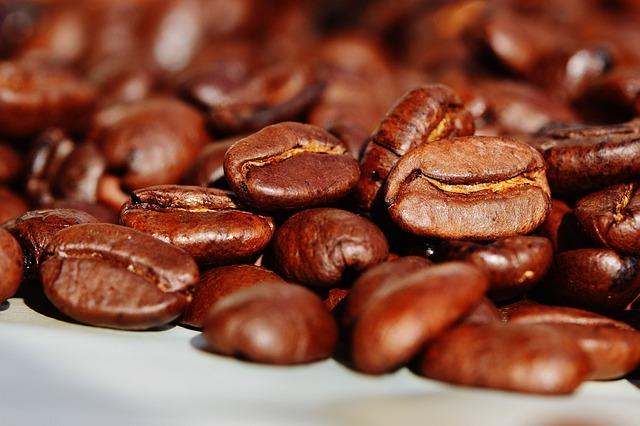Are you a fitness enthusiast on the quest for the perfect muscle-building supplement? Look no further than Muscle Milk! But before you hit the gym and gulp down this popular protein shake, you may have a burning question: does Muscle Milk contain creatine? In this informative article, we will dive into the depths of Muscle Milk’s ingredients, exploring whether or not this renowned product contains the muscle-boosting power of creatine. So, grab your shaker bottle, because it’s time for an ingredient check that could take your workouts to the next level!
1. Understanding the Ingredients: Is There Creatine in Muscle Milk?
Muscle Milk is a popular choice among fitness enthusiasts and athletes who are looking to enhance their performance and build muscle. One common question that arises is whether Muscle Milk contains creatine, a widely used supplement known for its ability to increase muscle strength and improve exercise performance.
While Muscle Milk does contain several ingredients that help support muscle growth and recovery, such as high-quality proteins, carbohydrates, and essential nutrients, it does not contain creatine. Instead, Muscle Milk relies on a unique blend of protein sources, including whey and casein, to deliver a comprehensive amino acid profile that aids in muscle building and repair.
- Muscle Milk contains quality proteins like whey and casein
- Its comprehensive amino acid profile supports muscle building and repair
- Does not contain creatine
So, if you’re specifically looking to supplement with creatine, you may need to explore other options or consider combining Muscle Milk with a separate creatine supplement to meet your desired goals. It’s always a good practice to consult with a healthcare professional or a qualified nutritionist before adding any new supplements to your routine.

2. Decoding Muscle Milk: A Closer Look at the Components
Muscle Milk is a popular protein supplement among fitness enthusiasts, but what exactly goes into it? Let’s dive deeper into its components to understand why it’s chosen by so many people.
Whey Protein Isolate: This is one of the primary ingredients in Muscle Milk. Whey protein isolate is a high-quality, fast-digesting protein that is easily absorbed by the body. It contains all the essential amino acids required for muscle repair and growth. When consumed after a workout, whey protein isolate helps speed up recovery and supports muscle protein synthesis.
Essential Vitamins and Minerals: Muscle Milk is fortified with essential vitamins and minerals that play a vital role in overall health. These include but are not limited to vitamins A, C, D, E, and B-complex, along with minerals like calcium, iron, and magnesium. These micronutrients are important for energy production, immune function, bone health, and many other physiological processes.
- Digestive Enzymes: To aid digestion and maximize nutrient absorption, Muscle Milk contains digestive enzymes such as proteases and lactases. These enzymes help break down proteins and lactose, making it easier for the body to absorb and utilize the nutrients effectively.
- Complex Carbohydrates: Muscle Milk includes carbohydrates like maltodextrin, which provide a source of energy for workouts and replenish glycogen stores. Complex carbohydrates are digested slowly, providing a sustained release of energy, ideal for sustained physical activity.
- Healthy Fats: Muscle Milk contains medium-chain triglycerides (MCTs), a type of healthy fat that is easily metabolized for energy. These fats provide a source of calories and aid in the absorption of fat-soluble vitamins.

3. Protein Powerhouse: Unleashing the Secrets of Muscle Milk’s Ingredients
When it comes to fueling your muscles and maximizing your workouts, Muscle Milk is a game-changer. Packed with an array of powerful ingredients, this protein powerhouse is designed to take your fitness journey to the next level. Let’s dive into the secrets behind its incredible formula.
1. High-Quality Protein: At the core of Muscle Milk’s effectiveness lies its rich protein content. Each serving contains a blend of high-quality proteins, including whey and casein, intensifying muscle repair and growth. These fast-acting and slow-digesting proteins work synergistically to provide long-lasting nourishment to your muscles, ensuring they recover and develop optimally.
2. Essential Amino Acids: Muscle Milk is also packed with essential amino acids, which are the building blocks of muscle tissue. With a complete profile of these vital nutrients, it helps support protein synthesis and muscle recovery, allowing you to bounce back stronger from intense workouts.
3. Vitamins and Minerals: To power you through your fitness journey, Muscle Milk is fortified with a range of essential vitamins and minerals, including vitamin D, calcium, and magnesium. These micronutrients play a crucial role in bone health, muscle contraction, and overall well-being.
4. Healthy Fats and Carbohydrates: Contrary to popular belief, not all fats and carbs are bad for you. Muscle Milk incorporates healthy fats, like medium-chain triglycerides (MCTs), and complex carbohydrates, promoting sustained energy levels and aiding in muscle fueling. This balanced approach ensures you have the necessary components to optimize your performance.
4. Is Creatine Part of the Muscle-Building Equation in Muscle Milk?
Muscle Milk is a popular choice among athletes and fitness enthusiasts who are looking to enhance their muscle growth. One key ingredient that often comes up in discussions about Muscle Milk is creatine. Creatine has long been a staple supplement for those looking to build muscle, but is it really a part of the muscle-building equation in Muscle Milk? Let’s examine the role of creatine in this popular protein shake.
Creatine is a naturally occurring compound found in our muscles. It plays a crucial role in the production of adenosine triphosphate (ATP), which is the primary source of energy for muscle contractions. When you consume creatine, it gets stored in your muscles as phosphocreatine, ready to be used for the energy needs of intense exercises. By supplementing with creatine, you can increase the levels of phosphocreatine in your muscles, resulting in improved workout performance and potentially greater gains in muscle mass.
However, while creatine is undoubtedly a powerful muscle-building supplement on its own, it’s important to note that not all Muscle Milk products contain creatine. Some variations of the Muscle Milk line do include creatine as an added ingredient, while others do not. To ensure you’re getting creatine in your Muscle Milk, check the product label or the brand’s website to see if it is listed as an ingredient.
5. Essential Nutrients in Muscle Milk: Discovering the Role of Creatine
If you’re interested in maximizing your athletic performance and building lean muscle, then you’ve probably come across the popular supplement known as Muscle Milk. One of the key ingredients in Muscle Milk is creatine, an essential nutrient that plays a crucial role in muscle growth and strength.
Creatine is a naturally occurring compound found in small amounts in foods like red meat and fish. However, supplementing with creatine can significantly increase your body’s creatine stores, providing various benefits for athletes and individuals looking to gain muscle mass. Here’s a closer look at why creatine is considered an essential nutrient:
- Improved Workout Performance: Creatine has been extensively researched and proven to enhance high-intensity, short-duration activities like weightlifting or sprinting. It works by providing quick energy to the muscles, allowing you to push harder and perform better during your workouts.
- Increase in Muscle Size and Strength: Supplementing with creatine has been shown to increase muscle mass and strength over time, as it helps your muscles hold more water and increase protein synthesis. This allows for faster recovery between workouts and greater gains in muscle mass.
- Enhanced Brain Function: Apart from its role in muscle growth, creatine also plays a part in cognitive function. Research suggests that creatine supplementation may improve memory, attention, and mental performance, making it beneficial for both physical and mental performance.
It’s important to note that while creatine is generally safe for most people, it’s essential to consult with a healthcare professional before starting any new supplement regimen, especially if you have any pre-existing medical conditions. By incorporating Muscle Milk into your diet and harnessing the power of creatine, you can give your body the nutrients it needs to reach its peak performance and achieve your fitness goals.
6. Muscle Milk Unveiled: Exploring the Ingredients Behind the Brand
Muscle Milk is a well-known brand in the fitness and sports nutrition industry, but have you ever wondered what goes into making this popular muscle-building beverage? In this post, we will take a closer look at the key ingredients behind the Muscle Milk brand and explore how they contribute to its effectiveness.
One of the main ingredients in Muscle Milk is whey protein. This high-quality protein source is derived from milk and is rich in essential amino acids that are vital for muscle growth and repair. Whey protein is known for its fast absorption rate, making it an ideal choice for athletes and gym-goers who want to enhance their muscle recovery and build lean muscle mass. Additionally, Muscle Milk contains casein protein, which is another milk-derived protein that is slowly digested, providing a sustained release of amino acids over a longer period of time.
- Vitamins and Minerals: Muscle Milk is also fortified with a range of essential vitamins and minerals, including calcium, phosphorus, vitamin D, and magnesium. These nutrients play a crucial role in supporting overall health and bone strength.
- Healthy Fats: Another notable ingredient found in Muscle Milk is healthy fats, such as medium-chain triglycerides (MCTs) and polyunsaturated fats. These fats provide a source of energy and aid in nutrient absorption.
- Complex Carbohydrates: To fuel workouts and replenish glycogen stores, Muscle Milk contains complex carbohydrates like maltodextrin. These carbohydrates are crucial for sustained energy and preventing muscle fatigue.
- Fiber: Muscle Milk is also enriched with fiber, which aids in digestion and helps regulate blood sugar levels.
In conclusion, Muscle Milk’s formulation combines high-quality proteins, important vitamins and minerals, healthy fats, complex carbohydrates, and fiber to create a comprehensive and effective muscle-building drink. With its balanced blend of ingredients, Muscle Milk can be a valuable addition to your fitness routine, assisting in muscle recovery, growth, and overall well-being.
7. A Comprehensive Ingredient Analysis: Separating Fact from Fiction in Muscle Milk
When it comes to protein supplements, it’s essential to make an informed choice. In this section, we’ll delve into a comprehensive ingredient analysis of Muscle Milk, busting some common myths and separating fact from fiction.
1. High-Quality Protein: Muscle Milk is formulated with a blend of high-quality proteins, including whey protein isolate and casein. These proteins are not only easily digestible but also rich in essential amino acids, which are crucial for muscle repair and growth.
2. Essential Nutrients: Muscle Milk isn’t just about protein; it also provides a range of essential nutrients. It contains a mix of vitamins and minerals like calcium, iron, and vitamin D. These nutrients play a vital role in supporting overall health and wellbeing.
3. Healthy Fats: Contrary to some misconceptions, Muscle Milk includes healthy fats in the form of medium-chain triglycerides (MCTs). MCTs are a source of energy and can help with weight management, metabolism, and brain function.
4. Low Sugar Content: While Muscle Milk comes in various flavors, it’s important to note that the sugar content is relatively low compared to some other protein supplements. It is sweetened with a combination of natural and artificial sweeteners to provide a satisfying taste without excessive sugar.
5. Customizable Options: Depending on your specific dietary needs and preferences, Muscle Milk offers various flavors and formulations. It comes in both dairy-based and plant-based options, allowing you to choose the one that best suits your nutritional goals and dietary restrictions.
6. Gluten-Free and Certified: If you have gluten sensitivities or follow a gluten-free lifestyle, you’ll be happy to know that Muscle Milk is gluten-free certified. It undergoes rigorous testing to ensure it contains less than 20 parts per million (ppm) of gluten, meeting the standards set by various regulatory bodies.
In conclusion, Muscle Milk provides a comprehensive and well-balanced blend of proteins, essential nutrients, and healthy fats. It can be a valuable addition to your fitness routine, aiding in muscle recovery and supporting your overall nutritional needs.
8. Unraveling the Mysteries: Debunking the Creatine Myth in Muscle Milk
There has been a common misconception surrounding the inclusion of creatine in Muscle Milk, leading to numerous myths and misunderstandings. Let’s debunk these misconceptions and shed light on the truth behind the creatine myth.
Myth #1: Creatine in Muscle Milk is harmful to the body.
This couldn’t be further from the truth. Creatine is actually a naturally occurring compound found in our bodies and in various foods we consume, such as meat and fish. It plays a crucial role in providing energy to our muscles during high-intensity activities. The small amount of creatine present in Muscle Milk is well within the safe limits for consumption, and it poses no harm to the body when used as directed.
Myth #2: Creatine in Muscle Milk leads to excessive weight gain.
This myth stems from the misunderstanding that creatine causes water retention, resulting in unwanted weight gain. While it’s true that creatine can cause some initial water retention, it is not responsible for significant or long-term weight gain. The weight gain often associated with creatine supplements is primarily due to increased muscle mass and improved exercise performance. It is important to note that the weight gain is not attributed solely to creatine but to the overall effect of proper nutrition and exercise while taking the supplement.
Frequently Asked Questions
Q: Does Muscle Milk contain creatine?
A: No, Muscle Milk does not contain creatine as one of its ingredients.
Q: What exactly is Muscle Milk?
A: Muscle Milk is a popular protein supplement often used by athletes and fitness enthusiasts to support muscle growth and recovery.
Q: What are the main ingredients in Muscle Milk?
A: The main ingredients in Muscle Milk include milk protein isolate, calcium sodium caseinate, and whey protein concentrate. It also contains multiple vitamins and minerals to provide a well-rounded nutritional profile.
Q: Is creatine an essential component for muscle growth?
A: While creatine is known to enhance performance during high-intensity, short-duration activities, it is not considered an essential ingredient for muscle growth. Muscle growth primarily relies on adequate protein intake, overall calorie consumption, and engaging in regular strength training exercises.
Q: Why would people normally take creatine supplements?
A: Some people choose to take creatine supplements to increase their strength and power during intense workouts. It can help improve high-intensity exercise performance and contribute to short-term muscle growth.
Q: Can you get creatine from other sources?
A: Yes, creatine naturally occurs in certain foods such as meat and fish. Therefore, individuals who consume a well-balanced diet may already obtain adequate amounts of creatine without the need for supplementation.
Q: Are there any potential risks or side effects of taking creatine?
A: When taken within recommended dosages, creatine is generally safe for most individuals. However, excessive or improper usage may lead to possible side effects such as stomach cramps, nausea, or dehydration. Pregnant or breastfeeding women, as well as individuals with pre-existing kidney or liver conditions, should consult a healthcare professional before using creatine supplements.
Q: Are there other nutrients and minerals in Muscle Milk that support muscle growth?
A: Yes, Muscle Milk contains a variety of nutrients and minerals that contribute to muscle growth, including calcium, magnesium, vitamin D, and zinc. These elements play important roles in bone health, energy metabolism, and overall muscle function.
Q: Should individuals consult a doctor before taking any supplements, including Muscle Milk?
A: It is always a good idea to consult with a healthcare professional, especially if you have any pre-existing medical conditions or are already taking other medications or supplements. They can provide personalized advice based on your specific needs and circumstances.
Q: Is Muscle Milk suitable for everyone?
A: Muscle Milk is generally safe for healthy individuals seeking to supplement their protein intake. However, individuals with lactose intolerance or dairy allergies should be cautious, as some Muscle Milk products contain milk ingredients. Fortunately, there are alternative protein supplements available for those with dietary restrictions or preferences.
The Conclusion
In conclusion, when it comes to the question of whether Muscle Milk contains creatine, it’s important to examine the ingredient list. While Muscle Milk is a protein supplement packed with essential nutrients and amino acids, it does not naturally contain creatine. However, some varieties of Muscle Milk may contain added creatine monohydrate, a popular ingredient among bodybuilders and athletes seeking to maximize their performance. If you’re looking for a protein supplement with creatine, make sure to check the label carefully or opt for other products explicitly marketed as creatine supplements. As always, it’s recommended to consult with a healthcare professional or a registered dietitian who can provide personalized advice based on your specific goals and dietary needs. With this information in mind, you can make an informed decision about whether Muscle Milk is the right choice for you in achieving your fitness and nutritional goals.







